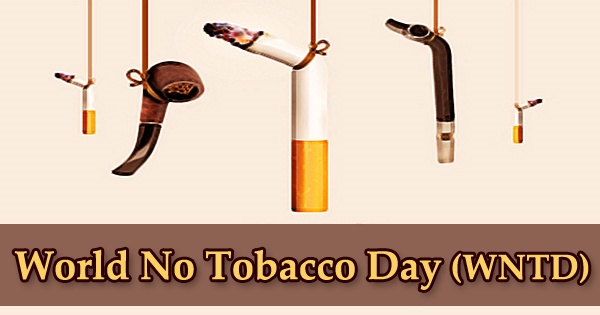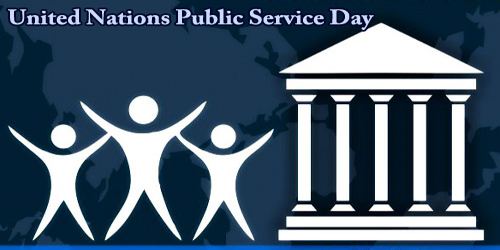The World Health Organization (WHO) established World No Tobacco Day (WNTD), which is observed every year on May 31st. Its purpose is to raise awareness about the health risks associated with tobacco use and to encourage all tobacco users to stop for good. This annual event educates the public about the dangers of smoking, tobacco companies’ business practices, what the World Health Organization (WHO) is doing to combat tobacco use, and what people all over the world can do to assert their right to health and a healthy lifestyle while also protecting future generations. Tobacco is also to blame since smokers who smoke 1.5 packs per day are 6 times more likely to develop periodontal disease than nonsmokers. Fortunately, smokers who quit can return to a nonsmoker’s risk of gum disease in around 11 years. In 1987, the World Health Organization’s Member States established World No Tobacco Day to raise global awareness of the tobacco pandemic and the needless death and disease it causes. The day is also intended to raise awareness about the widespread use of tobacco and its harmful health effects, which cause more than 8 million deaths worldwide each year, including 1.2 million fatalities among nonsmokers exposed to secondhand smoke. Governments, public health organizations, smokers, growers, and the tobacco business have all expressed support and opposition to the day around the world. Smoking is a highly addictive habit, and nicotine is a highly addictive drug. The leading cause of lung cancer in the world is smoking. Two-thirds of lung cancer deaths are caused by it. Smoking is responsible for nearly all occurrences of chronic obstructive pulmonary disease (COPD). Chronic bronchitis and emphysema are two types of COPD. Cancer, cardiovascular disease, lung disease, type 2 diabetes, COPD, and stroke are all caused by smoking. Smokers die 10 years earlier than non-smokers on average. WNTD is one of 11 official global public health campaigns marked by the WHO, along with World Health Day, World Blood Donor Day, World Immunization Week, World Tuberculosis Day, World Malaria Day, World Hepatitis Day, World Chagas Disease Day, World Patient Safety Day, World Antimicrobial Awareness Week and World AIDS Day. Since 1988, the World Health Organization (WHO) has given one or more awards to organizations or individuals who have made significant efforts to reducing tobacco use. Individuals from six different global regions (Africa, the Americas, the Eastern Mediterranean, Europe, South-East Asia, and the Western Pacific) receive World No Tobacco Day Awards, while Director-General Special Awards and Recognition Certificates are awarded to individuals from any region.
In 1987, the World Health Assembly declared April 7th of the following year to be “a world no-smoking day,” timed to coincide with the WHO’s 40th anniversary. This groundbreaking global tobacco control effort attempted to support tobacco users who were trying to quit by encouraging them to abstain from smoking for 24 hours. The initiative, titled “Tobacco or Health: Choose Health,” was picked up by a number of countries, which held events to commemorate the day in their own countries, including public smoking bans in Ethiopia, tobacco sales suspension in Cuba, poster contests in Spain, and public awareness campaigns in Lebanon and China. In 1989, during its 12th Plenary Meeting, the 42nd Assembly enacted resolution WHA42.19, emphasizing that “health services should clearly and unequivocally communicate the health dangers associated with tobacco smoking and actively support all efforts to avoid the associated diseases.” This resolution went on to establish May 31st of each year as “World No Tobacco Day” in the future. The WHO launched the Tobacco Free Initiative (TFI) in 1998, with the goal of focusing worldwide resources and attention on the global health issue of tobacco. The project assists in the development of global public health policy promote inter-societal mobilization and support the WHO Framework Convention on Tobacco Control (FCTC). Vaping is not a healthy substitute for smoking. It’s an expensive habit. There’s the expense of cigarettes, but there’s also the cost of healthcare as a result of smoking-related illnesses. The WHO chooses a theme for World Nutrition Day every year in order to promote a more united worldwide message for WNTD. This issue is then incorporated into the WHO’s tobacco-related agenda for the following year. The WHO is in charge of producing and disseminating publicity materials for the subject, such as booklets, pamphlets, posters, websites, and press releases. Those who quit smoking earlier reap greater health advantages and have a higher quality of life than those who continue to smoke. The WHO acts as a focal point for communication and coordination of WNTD events all across the world. The WHO website allows organizations to share information about their activities, and the organization publishes this information by nation online.















